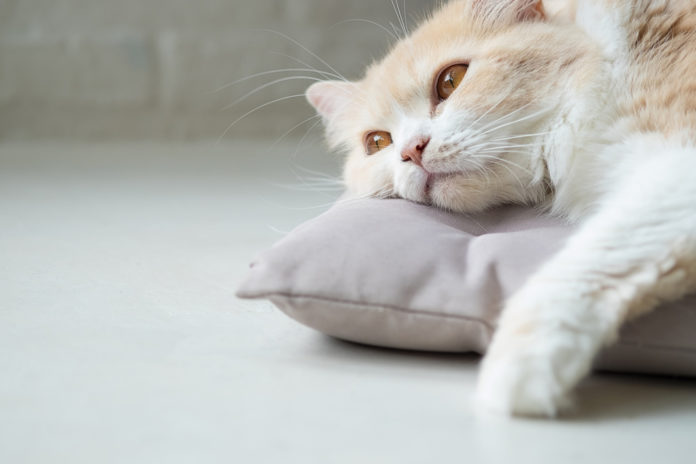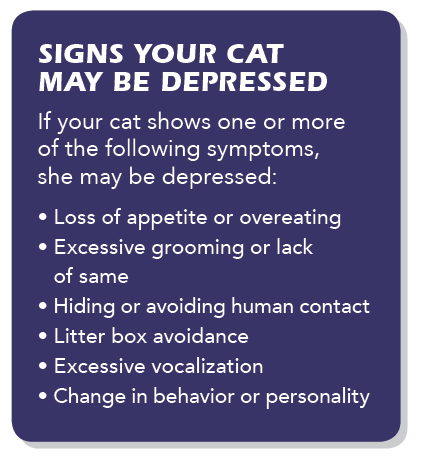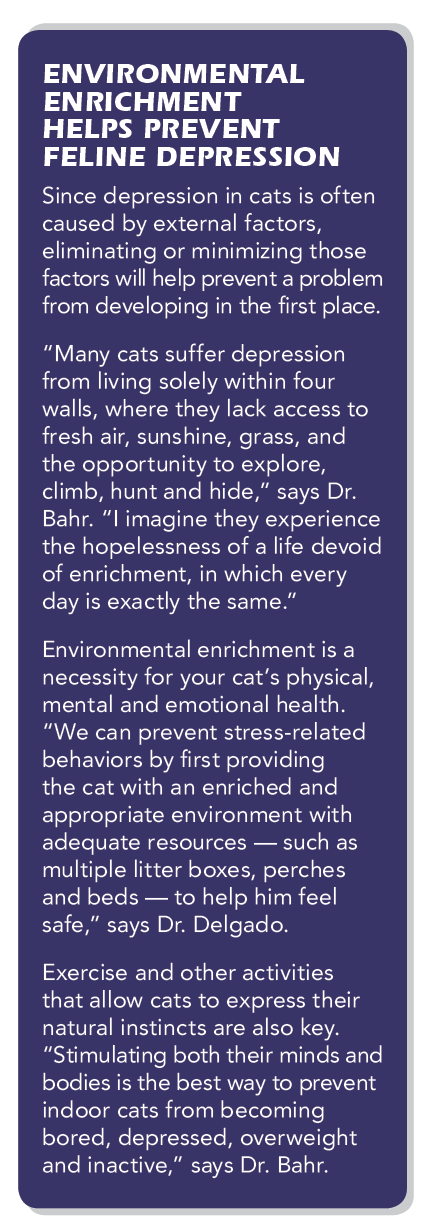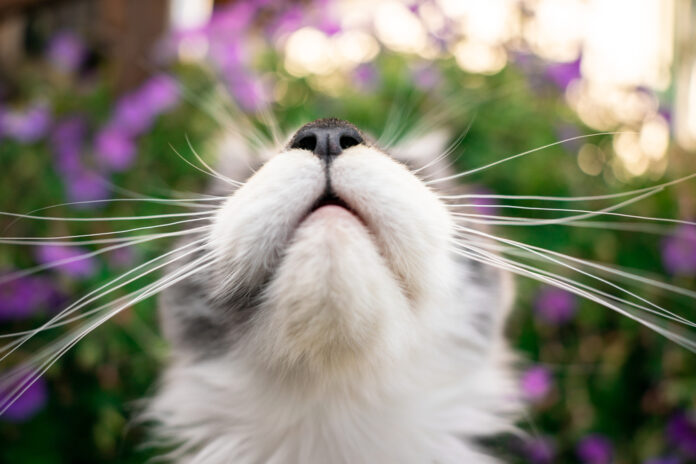Is your cat depressed?

If your cat doesn’t seem his usual self, it’s possible he may be depressed. Learn the possible signs and symptoms, and work with your vet to uncover the cause and find a solution.
Depression in humans has reached epidemic proportions in the United States. A 2017 study by the National Institute of Mental Health found that an estimated 17.3 million adults has had at least one major depressive episode, characterized by a loss of interest or pleasure in daily activities, as well as problems with sleeping, eating, energy, concentration and self-worth. When it comes to depression in cats, however, the picture isn’t as clear. A diagnosis of depressed humans is primarily based on self-reported symptoms, but the disease is much harder to assess in cats. Let’s take a look at feline depression and how it’s diagnosed and treated.
 If your cat starts showing signs of possible depression (see sidebar at right), the first step is to take him to the vet for a thorough exam, since any of these symptoms can also indicate of a number of different illnesses. It’s important to rule these out before assuming your cat is depressed.
If your cat starts showing signs of possible depression (see sidebar at right), the first step is to take him to the vet for a thorough exam, since any of these symptoms can also indicate of a number of different illnesses. It’s important to rule these out before assuming your cat is depressed.
Causes of depression in cats
1. Grief
The most common cause for depression in cats can be the loss of a human companion or another animal in the household. Even though cats have a reputation for being aloof, they form strong bonds with humans and other animals, including other cats. As a result, losing a beloved companion can lead to depression.
2. Pain
Pain may be another cause. Cats are masters at masking discomfort, and by the time pain becomes obvious to cat guardians or even veterinarians, the cat may have been living with it for a considerable time. Extrapolating once again from human medicine, we know there is a strong link between chronic pain and depression.
3. Boredom
While boredom more commonly leads to behavioral problems such as destructive scratching and aggression towards humans and other cats, it can also cause depression. Lack of human interaction in particular can cause cats to become depressed.
4. Change
Changes in routine may also be responsible for causing depression. Cats are creatures of habit, and disruptions in their routine — anything from a new piece of furniture to a new human or feline family member — can cause stress and disturb their sense of equilibrium.
 How is feline depression diagnosed?
How is feline depression diagnosed?
Since cats can’t tell us why they’re sad, the veterinarian will need to rely on traditional diagnostics to rule out other medical issues.
“There is no scientific way I know of to diagnose depression in cats,” says feline veterinarian Dr. Lynn Bahr. “Because they are not verbal and their communication with us is limited, we can only look for signs that may indicate depression.”
In addition to taking a full history of symptoms and a thorough physical exam, your vet may perform blood tests, x-rays and ultrasound. If your cat checks out fine medically, your vet will help you look for external stressors that may be causing your cat’s depression.
Treating depression in cats
Grief: A cat who is grieving needs extra compassion and care. Spending extra time with the cat, providing new toys or beds, engaging him in interactive play, and giving him special treats can all help. Holistic modalities such as Reiki, Tellington TTouch and other forms of energy healing can also be beneficial. Holistic remedies such as flower essences can support depressed cats through the grieving process.
Pain: “In order to successfully treat depression, it is helpful to understand the underlying cause,” says Dr. Bahr. “If the cat’s depression is due to pain, then obviously finding ways to relieve that pain is extremely important.” This might require conventional medication to start with, but depending on the cause of the pain, a range of integrative and holistic therapies can help. For example, arthritis pain can be relieved with joint supplements, acupuncture, Assisi loops, etc.
Boredom: “Play, along with items that provide mental stimulation, like food puzzles, cat grass, and window perches with bird feeders to watch, can all help the cat engage more with his environment and relieve boredom,” says Mikel Delgado, PhD, a postdoctoral fellow at the School of Veterinary Medicine at UC Davis.
Stress from a change in routine: If the depression is due to stress, then figuring out what the major stressors are and how to eliminate them will help,” says Dr. Bahr. If your cat’s depression arises from the addition of a new animal to the household, there are a few things you can do. “Consider a slower introduction to the new pet based on positive experiences, or add more vertical space so he can avoid the stressful situation,” says Dr. Delgado.



